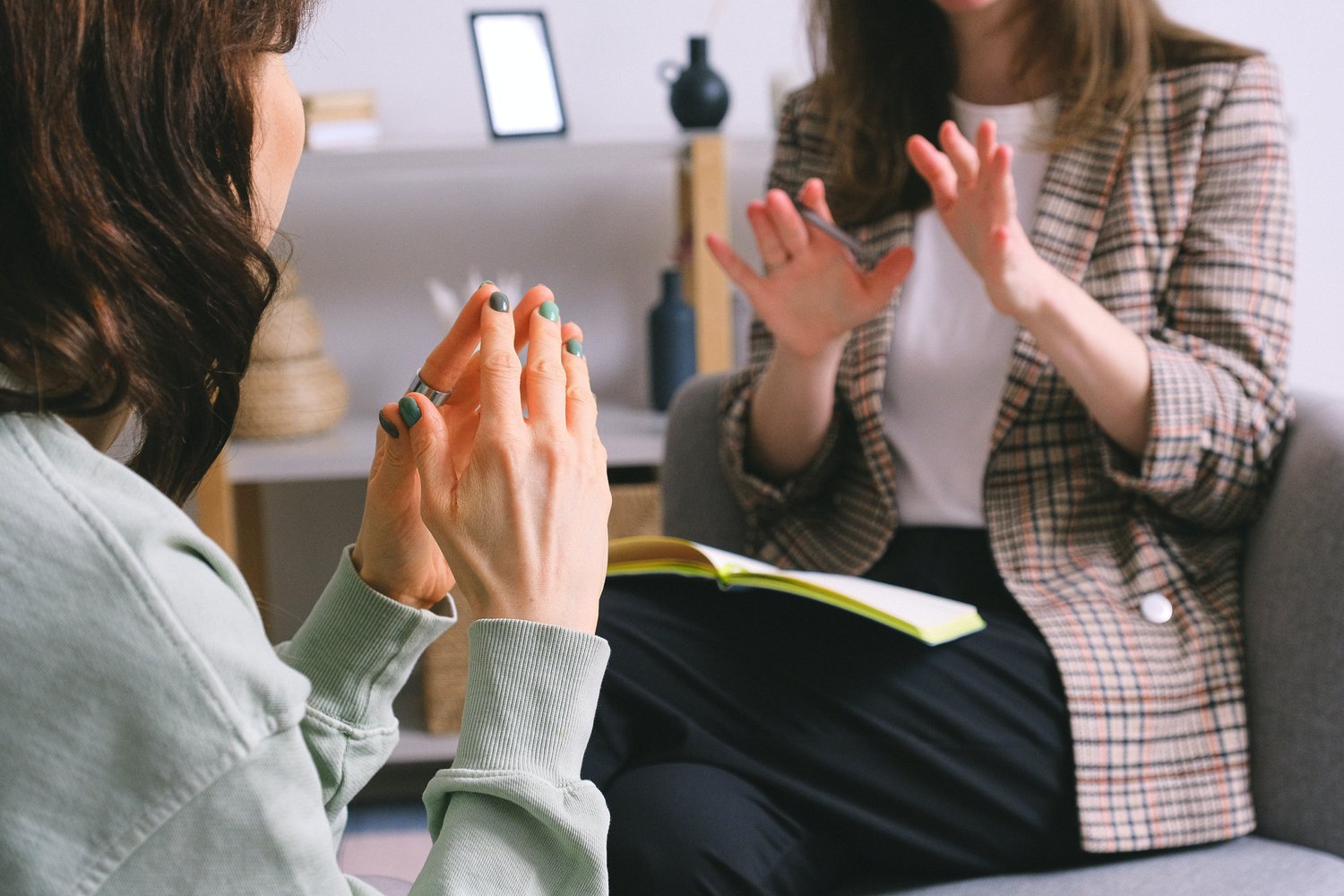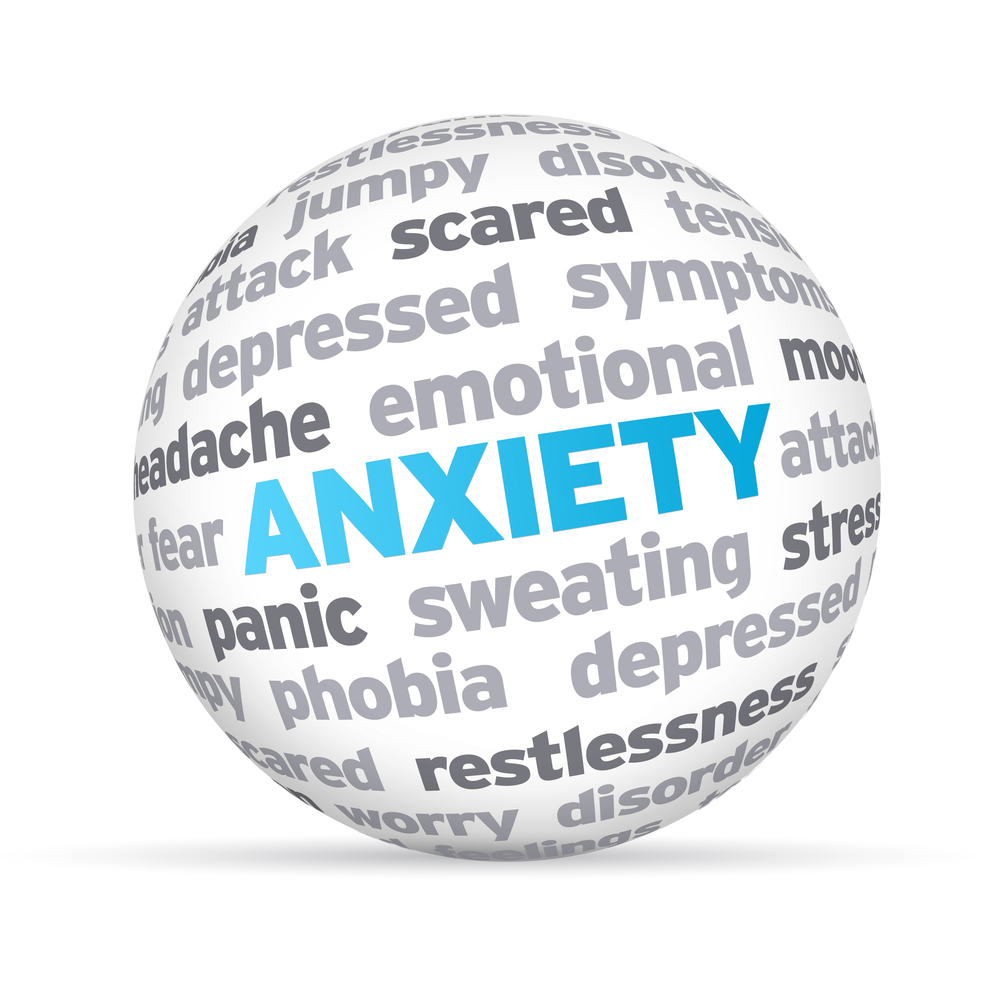Get started for expert-led counselling for anxiety services
Get started for expert-led counselling for anxiety services
Blog Article
Exploring Various Strategies in Therapy for Anxiety Disorder for Enduring Modification
When taking on anxiety conditions, it's important to check out a range of counseling techniques. Each technique supplies unique insights and devices to help you handle your signs and symptoms efficiently. You might find that combining strategies can generate the most effective results. Nonetheless, comprehending the nuances of these approaches is vital to promoting long lasting adjustment. What happens if the best combination could launch a new level of psychological well-being for you?
Comprehending Stress And Anxiety Conditions: A Brief Summary
Anxiety conditions, which influence millions of individuals worldwide, can considerably impact everyday life. You may experience frustrating sensations of concern or worry that appear irrepressible. These feelings can bring about physical symptoms like an auto racing heart, sweating, or perhaps wooziness. Common kinds of anxiety disorders consist of generalized anxiousness disorder, panic attack, and social anxiety disorder. Each has distinct indicators, but they all share a tendency to interrupt your routine and relationships.Understanding the source of your anxiety is important. It might stem from genes, brain chemistry, or life experiences. Acknowledging your triggers can aid you handle your responses much better. It's important to keep in mind that you're not the only one in this struggle. Lots of people encounter comparable challenges, and looking for assistance is a solid action towards sensation better. By learning more about anxiousness disorders, you're currently on the course to understanding and managing your condition better.
Cognitive-Behavioral Therapy: Testing Adverse Idea Patterns
In Cognitive-Behavioral Treatment, you'll begin by recognizing the adverse thought sets off that contribute to your stress and anxiety. As soon as you recognize these ideas, you'll work with replacing them with even more positive alternatives. With each other, you'll develop reliable coping strategies to help manage your stress and anxiety in daily scenarios.
Identifying Unfavorable Idea Triggers

Acknowledging the specific triggers behind your unfavorable thoughts can be crucial in taking care of stress and anxiety when you run into moments of distress. Start by paying attention to situations that prompt feelings of fear or concern. Is it a crowded space, a future target date, or a conversation with specific people? Write down these circumstances in a journal. This will help you determine patterns in your reasoning. Notice physical feelings that accompany your adverse ideas, like an auto racing heart or tightness in your chest. By pinpointing these triggers, you gain understanding into what's fueling your anxiety. Recognizing these connections is the initial step in challenging those thoughts and eventually restoring control over your psychological responses.
Replacing Ideas With Positives
Testing unfavorable thought patterns is a necessary action in transforming your frame of mind and reducing anxiety. You may commonly locate yourself entraped in cycles of self-doubt or catastrophic thinking. Rather than letting these ideas determine your feelings, practice replacing them with favorable affirmations or reasonable choices. For instance, when you think, "I can not manage this," shift it to, "I can take care of difficulties one step each time." This straightforward change can substantially impact your mood. Frequently recognizing and countering these negative thoughts helps create a healthier inner dialogue. Bear in mind, it requires time and initiative, however consistently exercising this method can lead to lasting adjustment, equipping you to face anxiousness with renewed confidence and resilience.
Building Coping Approaches With Each Other
Changing unfavorable ideas is only the beginning of managing anxiety effectively. To create lasting adjustment, you require to develop coping approaches that empower you. Cognitive-Behavioral Treatment (CBT) helps you recognize and test those purposeless idea patterns. Together, you and your therapist can check out how these ideas impact your sensations and behaviors.Start by developing practical techniques, like journaling or mindfulness workouts, that enable you to face stress and anxiety head-on. When you encounter your anxieties progressively, you'll learn to react in different ways.

Mindfulness and Acceptance-Based Approaches: Growing Present-Moment Awareness
As you navigate the intricacies of anxiousness, incorporating mindfulness and acceptance-based approaches can significantly boost your ability to cultivate present-moment awareness. By focusing on the here and currently, you'll discover that you can observe your thoughts and feelings without judgment (Counseling services for anxiety). This method assists you recognize your anxiety without feeling bewildered by it.Engaging in mindfulness workouts, such as deep breathing, body scans, or guided meditations, enables you to ground on your own in your present experience. Acceptance-based methods encourage you to accept your emotions instead of fight against them. They lose their power over you.Incorporating these methods into your day-to-day regimen can change exactly how you react to stress and anxiety when you accept your sensations. You'll create strength and discover to navigate demanding scenarios with better ease. Inevitably, growing present-moment recognition lays the structure for long-term change, equipping you to lead an extra satisfying life
Direct Exposure Therapy: Confronting Worries Slowly
Direct exposure treatment assists you face your fears in a progressive way, making it less overwhelming. You'll learn strategies to encounter anxiety-provoking circumstances step by step, while also developing coping strategies to manage your responses. This approach encourages you to take control and lower anxiety with time.
Progressive Direct Exposure Methods

When dealing with anxiousness, slowly confronting your fears can be an effective method to gain back control. This technique, referred to as gradual direct exposure, includes slowly exposing on your own to the scenarios or items that trigger your anxiety. Start with much less daunting circumstances and gradually work your method as much as even more tough ones. If you're worried of public talking, you might start by talking in front of a mirror, then proceed to sharing thoughts with a pal, and eventually address a tiny team. Each action helps desensitize you to the fear, building your self-confidence with time. Keep in mind, it's vital to rate on your own and celebrate tiny success as you move through this procedure, enhancing your ability to manage anxiety effectively.
Structure Coping Techniques
Structure effective coping approaches is essential for managing stress and anxiety, specifically as you confront your worries progressively - Counseling services for anxiety. One powerful method is direct exposure therapy, where you begin by encountering your worries in a controlled fashion. Begin with less daunting circumstances and gradually work your means as much as more difficult situations. This steady direct exposure assists desensitize you to anxiousness triggers, making them much less overwhelming.Incorporate relaxation methods, such as deep breathing or mindfulness, to relax your mind during direct exposure. Track your progress, commemorating tiny success in the process to enhance your self-confidence. Remember, it's alright to take your time; the objective isn't perfection however stable improvement. By developing these techniques, you'll encourage on your own to navigate anxiousness and embrace life more completely
Psychodynamic Treatment: Uncovering Source of Stress And Anxiety
Psychodynamic treatment discovers the subconscious mind, disclosing the root check here creates of your anxiousness. By examining your thoughts, sensations, and past experiences, this approach aids you discover underlying conflicts and unsettled issues that might add to your existing stress and anxiety. You'll collaborate with a specialist to examine youth experiences, partnerships, and emotional patterns that form your reactions today.As you gain understanding into these much deeper layers of your psyche, you'll begin to recognize just how past occasions influence your existing behavior. This understanding can cause catharsis, allowing you to process emotions you could have suppressed.Through the restorative partnership, you can also recognize defense systems that might have established with time, providing a more clear course to change. Ultimately, psychodynamic treatment furnishes you with the devices to address your anxiousness at its core, promoting long-term improvement in your emotional well-being.
Integrative and All Natural Techniques: Incorporating Techniques for Greater Effectiveness
Integrating various restorative strategies can improve your trip towards managing stress and anxiety extra efficiently. By integrating components from cognitive-behavioral treatment, mindfulness practices, and holistic methods, you can produce a tailored approach that addresses your distinct requirements. You may utilize cognitive-behavioral methods to test unfavorable idea patterns while including mindfulness workouts to ground yourself in the present moment.Additionally, checking out alternative methods such as yoga or reflection can promote leisure and minimize anxiousness symptoms. This blend permits you to create better self-awareness and resilience.Experimenting with these diverse techniques can aid you uncover what resonates most with you. Bear in mind, it's concerning discovering a synergy that works, as opposed to adhering to a single approach. This integrative strategy not only offers prompt alleviation however also cultivates lasting skills for managing anxiousness, equipping you to reclaim control over your life.
The Duty of Support Systems: Structure Durability Through Link
While it may appear that handling anxiety is a singular journey, having a solid assistance system can play a necessary function in your strength. Surrounding yourself with understanding good friends, household, or support system develops a risk-free room where you can freely share your experiences and feelings. When you get in touch with others, you remind on your own that you're not alone in this struggle.These partnerships provide encouragement and can give useful coping approaches that have functioned for others. It's additionally a chance to get perspective; good friends can help you see circumstances in different ways, lowering sensations of isolation.Moreover, emotional assistance cultivates a sense of belonging, which can substantially minimize anxiousness symptoms. By leaning on your support group, you can construct resilience and deal with difficulties extra effectively. Keep in mind, getting to out for assistance suggests strength, and it can make all the difference in your trip toward managing anxiety.
Often Asked Inquiries
What Are the Typical Signs And Symptoms of Stress And Anxiety Problems?
You could experience restlessness, tiredness, problem concentrating, irritability, muscle stress, and sleep disruptions. Physical signs and symptoms can include fast heart beat, sweating, and shivering. Recognizing these signs early can aid you seek proper support and therapy.
The Length Of Time Does Therapy Normally Last for Anxiety Disorders?
Treatment for anxiety disorders typically lasts anywhere from a couple of weeks to several months. It actually relies on your individual demands, progression, and the techniques your specialist makes use of to help you handle your anxiety properly.
Can Medicine Be Used Together With Treatment for Stress and anxiety?
Yes, medication can most definitely be used along with treatment for stress and anxiety. Integrating both techniques often enhances treatment effectiveness, aiding you take care of signs and symptoms while exploring underlying problems via therapy (Counseling services for anxiety). Constantly consult your doctor for personalized advice
Are There Self-Help Techniques for Managing Anxiety?
Yes, there are several self-help strategies for taking care of anxiousness. You can practice mindfulness, take part in normal exercise, preserve a balanced diet, establish a regular, and use deep breathing strategies to assist lower stress and anxiety signs and symptoms successfully.
Exactly how Do I Know if I Required Expert Aid for Anxiousness?

Report this page